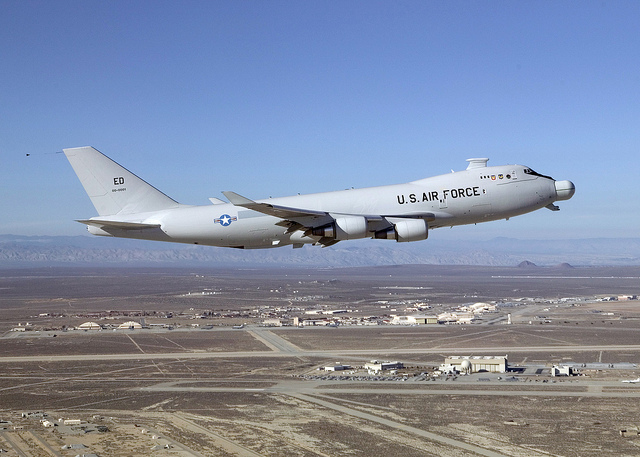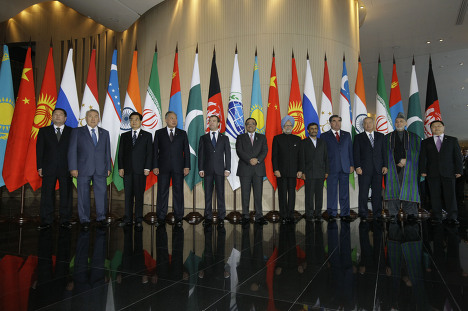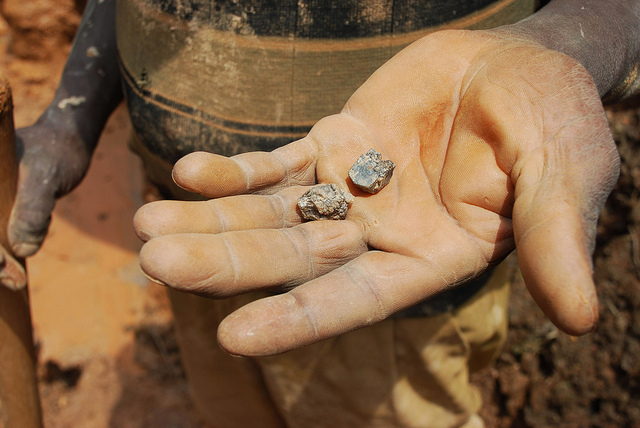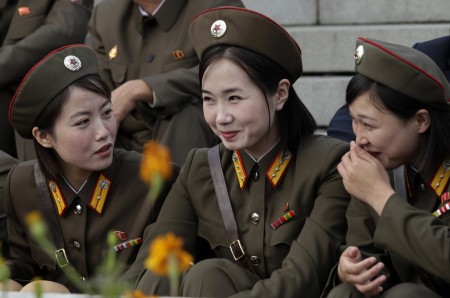Twenty-four trillion dollars. It is a number that beggars the imagination, almost 40 percent of the global economy, and according to a recent UNEP report it is buried in one of the world’s poorest and most violent countries: The Democratic Republic of Congo. Failed state, rape capital of the world, humanitarian catastrophe…Congo personifies all these but beneath the surface its dark earth holds $24 trillion of copper, cobalt, coltan, the bones and blood of information age manufacturing. For this reason, if for no other, the world cannot ignore Congo. It can’t afford to.
Week: Partner Insights
Posts from the ISN Partner Network

In its mark-up of the Defense Authorization bill for Fiscal 2013, the Strategic Forces Subcommittee of the House Armed Services Committee lauded the prior accomplishments of the Airborne Laser Test Bed program. It then went further by directing the Missile Defense Agency to provide a report by 31 July 2012 on the costs that would be involved in returning the Airborne Laser aircraft to an operational readiness status to continue technology development and testing, and to be ready to deploy in an operational contingency, if needed, to respond to rapidly developing threats from North Korea.

For middle powers like Saudi Arabia an effective foreign policy requires both cunning and a knack for identifying force multipliers. Of course, being the world’s largest oil producer is a bit of a force multiplier by itself, as the move on Thursday by the Organization of Petroleum Exporting Countries (OPEC) not to reduce production despite a price decline from $128 to $97 per barrel suggests.
OPEC price hawks like Iran sought to reduce the current 30 million barrel a day production quota (actual production is nearly 32mil brls a day as OPEC members routinely exceed their quotas). But Riyadh was not only opposed, but sought a production increase, though in the end the compromise was the status quo. That may sound a bit counter-intuitive – it was the first time in a decade that OPEC did not reduce production quotas after a more than 20 percent price decline. In fact, the Saudis were actually contemplating a production increase, even though that might drop prices close to the roughly $80/brl they need to balance their budget.
Why?
The new stage of North Korea’s leadership succession began with the rise to power of the third generation leader Kim Jong-un. On 15 April 2012, the newly-appointed First Secretary of the Workers’ Party of Korea Kim Jong-un made his first public speech during a military parade to commemorate Kim Il-sung’s centenary. It was the official announcement of the opening of the Kim Jong-un regime toward the world.
A series of political events from the Meeting of Party Representatives to the Kim Il-sung centenary celebrations clearly show that the third generation of leadership is emerging as a new core power group backed by the second generation. This move means more than just a generational shift in North Korea’s power structure. It indicative of possible changes in policy lines on its internal and external affairs.
Kim Jong-un conducted political reshuffles before and after the Meeting of Party Representatives in April 2012, as part of actions to implement a moderate shift in generation and to firmly secure his control over the military. Since smoothly establishing the hereditary succession process, Kim Jong-un not only moved to-ward assuming political leadership but also swiftly acquired a firm grip on the power elites in the party, government, and military by reorganizing and uniting power elites. It would seem Kim Jong-un’s rule is stable, at least in terms of power structure.

The twelfth summit of the Shanghai Cooperation Organisation (SCO) took place on 6-7 June in Beijing. The summit was attended by the presidents of the organisation’s member states: China, Russia, Kazakhstan, Uzbekistan, Kyrgyzstan and Tajikistan, and also by the presidents of Turkmenistan, Afghanistan, Iran and Pakistan.
A further development of co-operation in the area of security (for example, the development of SCO’s anti-terrorist structures) and economic co-operation (including work on the establishment of the SCO Development Bank; China offered a capital contribution at US$ 10 billion) was discussed during the meeting. On the occasion of this summit, China signed bilateral loan agreements with Kazakhstan (1 billion USD) and Tajikistan (1 billion USD).
Other issues which were raised during the summit included the situation in Afghanistan and the role of the SCO in the region after the ISAF mission ends (2014). The escalating tension imputed to the US over Iran and Syria was criticised. Afghanistan was accepted into the SCO with observer status, and Turkey was recognised as a “partner in dialogue”.


